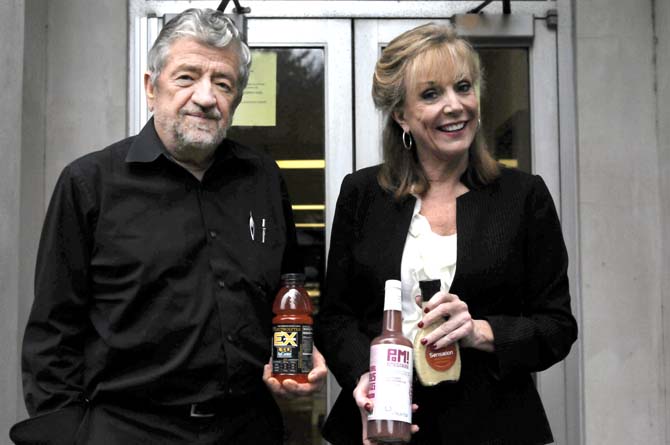Louisiana’s culinary culture is strongly steeped in tradition — but another of the state’s traditions, agriculture, is helpful in stirring up fresh ideas for food. This semester, the LSU AgCenter hosted events, launched efforts and taught courses that aim to both preserve old food customs and nurture new ones.
About 25 percent of food products are less than two years old, according to John Finley, director of food innovation at the AgCenter’s food business incubator, which will open in June. “Supermarket shelves continuously evolve,” so there is always room for new ideas, he said.
Finley said the incubator will provide startup food enterprises with business plans as well as access to production facilities and a demonstration kitchen.
Gaye Sandoz, the incubator’s coordinator, said more and more new businesses today are food- and beverage-related, so teaching tenants how to market their own goods will be a priority at the incubator, which will be only the second of its kind in Louisiana.
The incubator will help grow new food ideas, but it will also be a valuable resource for families and restaurants looking to commercialize their signature recipes, Sandoz said.
Although it is important to keep culinary traditions alive, restaurants must be willing to evolve as well, said Dickie Brennan, owner of Dickie Brennan and Company, at the 2013 Louisiana Food Processors Conference held March 14. Restaurants that resist making some changes may as well be museums, Brennan said, which leaves them open to becoming irrelevant and endangers the future of unique food cultures like Louisiana’s.
New Orleans chef and restaurateur John Besh, who was the keynote speaker at the same conference, said many of Louisiana’s traditions are inseparable from food. Besh said Hurricane Katrina in 2005 woke him up to how quickly a culture could be damaged, persuading him to be aggressive about maintaining Louisiana traditions such as eating red beans and rice on Mondays.
Besh said without such customs, he fears there would not be much reason to live in Louisiana.
“If we don’t hang on to all these great things that we have, and we’re not responsible with it, it will simply just erode away, and we will simply become just any old state on the coast — without a great beach,” he said.
Luckily, people are increasingly interested in preserving Louisiana’s uniqueness, Besh said.
The current push to preserve Louisiana’s one-of-a-kind culture is conveniently coinciding with “farm to table” and “buy local” phenomena, Besh said. Supporting agriculture is an important way to protect the state’s culture because when farmers partner with the food industry, they develop new commerce that fuels foodways and economies, he said.
Keeping food close to the consumer has other benefits as well. Horticulture instructor Bob Mirabello said people have recently become more in touch with their food and where it comes from, creating a growing interest in small-scale sustainable agriculture.
This trend benefits local economies in Louisiana because the state’s commercial horticulture industry declined when states such as California grew their production, Mirabello said.
Even so, many communities cannot economically support supermarkets that provide fresh, healthy foods. The result is food deserts, or low-income pockets that are more than a mile away from the nearest grocery store.
More than 75,000 East Baton Rouge Parish residents live in a food desert, according to a commission launched in February that is led by local business, academic, research, policy and nonprofit interests. The commission strives to expand access to wholesome foods, according to College of Agriculture Dean Kenneth Koonce.
Koonce, who is one of the commission’s 13 members, said food desert residents are not completely without food because they usually have access to small convenience stores. However, there is a tradeoff of affordable prices for foods that are usually processed and less nutritious — a problem because these foods worsen already-high obesity rates, he said.
One main issue the commission is studying is how to get supermarkets to locate in areas such as food deserts where they have not been successful before, Koonce said. Developing a business structure in these areas is essential for a permanent solution to the food desert problem, he said.
Koonce said residents of East Baton Rouge Parish, even those who do not live in food deserts, should take interest in the issue. Agriculture is key to finding solutions, he said.
“It’s not just about growing the food — it’s about processing the food, making it as healthy as possible and getting it to the consumer,” Koonce said.
“If we don’t hang on to all these great things that we have and we’re not responsible with it, it will simply just erode away and we will simply become just any old state on the coast — without a great beach.”






